CPhI, in partnership with Global Business Reports (GBR), has released a report on pharmaceutical industry trends in India. In terms of volume, the country contributes approximately 10% to the global pharmaceutical market and ranks among the top two to three pharmaceutical producers, especially when it comes to generic drugs.
Read more – Pharmaceutical Technology
December 4, 2014 | Greg
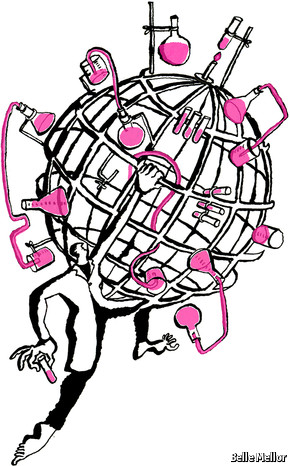
Most research equipment is under-used. Once it has been budgeted for, grant proposals written or fee schedules set to cover its purchase, kit costing millions of dollars can sit idle for most of the working day. This inefficiency troubled Elizabeth Iorns, a biologist from New Zealand. So she came up with the idea of a marketplace where laboratories could rent out their machines to conduct experiments for others.
Read more – The Economist
December 4, 2014 | Greg
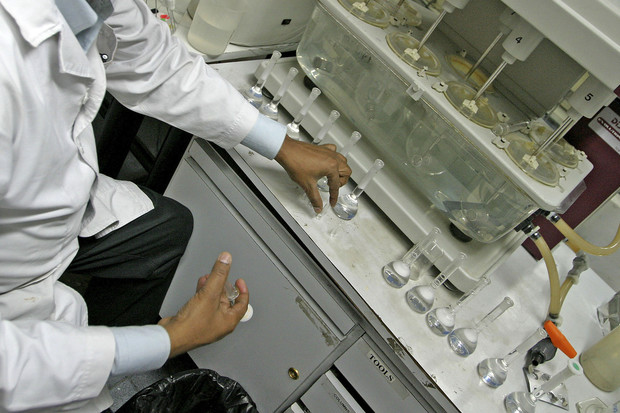
In a lab in an Indian village during the height of monsoon season in 2011, a technician hit a delete button — a keystroke that would have consequences three years later.
The quality-control employee of Sun Pharmaceutical Industries Ltd. had run high-powered chemical analyses on a drug sample to check for impurities that day. A certain level of impurity means the whole batch is supposed to be thrown out.
That’s not what happened…
Read more – Bloomberg
December 3, 2014 | Greg

Hobbled by sliding sales of Advair, GlaxoSmithKline’s U.S. group started to chop away at its large organization in North Carolina and Philadelphia on Wednesday as Glaxo’s North American chief Deirdre Connelly began to outline exactly where the axe will fall.
Read more – FierceBiotech
December 3, 2014 | Greg
India runs the risk of a severe shortage of medicines because of its over dependence on China for sourcing raw material for drugs, national security adviser (NSA) Ajit Doval has warned, TOI has learnt.
According to the NSA, India should take immediate concrete steps to create adequate infrastructure to become self-sufficient for manufacturing medicines which are essential in nature.
Read more – The Times of India
November 26, 2014 | Greg
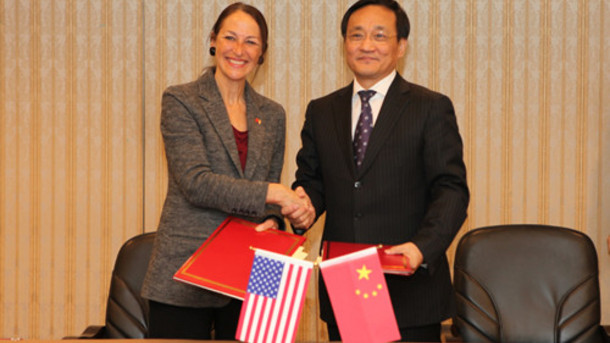
The FDA currently has eight staffers in China — which is sixth among exporters of drugs and biologics to the US – but only one of those staffers is devoted to the inspection of drug manufacturing facilities, FDA spokesman Chris Kelly told In-Pharmatechnologist.
Read more – In-Pharmatechnologist
November 24, 2014 | Greg
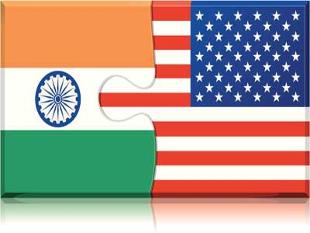
India will seek the United States’ support for an international treaty to protect its traditional knowledge of medicinal plants and herbs from being patented by other nations at a bilateral meeting this week.
At the India-US Trade Policy Forum (TPF) starting in New Delhi on Tuesday, Commerce and Industry Minister Nirmala Sitharaman will also push for market access for the Indian goods in the United States and a ‘totalisation agreement’ that would allow Indians working in the US to repatriate their social security contributions when they return to the country. She will co-chair the high-level dialogue with US Trade Representative Michael Froman.
Read more – The Economic Times
November 24, 2014 | Greg

G.V. Prasad is co-chairman and chief executive officer (CEO) of Dr Reddy’s Laboratories Ltd, India’s largest pharmaceutical company by turnover. The firm he heads has over 16,000 employees across the world, and manufactures 190 medications and 60 drug ingredients, diagnostic kits and other biotechnology products.
Between 27-30 November, Prasad will be a resource leader along with Ratan Tata, chairman emeritus of Tata Sons Ltd; Ram Charan, acclaimed CEO coach; and Sadhguru Jaggi Vasudev, who built the Isha Foundation. At the foundation’s campus in Coimbatore, between the four of them, they will lead a residential programme tailored for entrepreneurs called Insight: The DNA of success. The intended outcome is to explore what comprises the mind of an entrepreneur and how do they go about seeking success. Edited excerpts from an interview with Prasad:
Read more – Livemint
November 24, 2014 | Greg
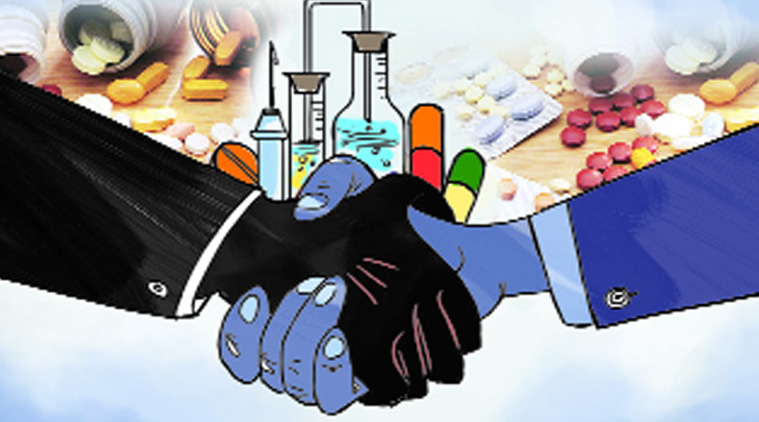
The consolidation of pharmaceutical supply chains in the US, by which wholesale and retail drug suppliers have teamed up to procure generic medicines, is starting to hurt revenues of Indian generics players, whose sales come mainly from the US market.
Abhijit Mukherjee, COO, Dr Reddy’s Laboratories, told analysts on a call recently, “Without giving you exact figures, I think this has been one of the most brutal years of price erosion as channel consolidation has been heavy in the US.”
Read more – The Indian Express
November 24, 2014 | Greg
“Our job”, says Jan Kemper, “is to make cells happy.” Ms Kemper works at MedImmune, a subsidiary of AstraZeneca based in Gaithersburg, Maryland. Her laboratory contains 40 bioreactors—fluid-filled tanks of about three litres’ capacity. Paddles within them whirl around a mixture of nutrient broth and specially engineered hamster cells that are busy making human antibodies.
Read more – The Economist
November 20, 2014 | Greg

In the last one year, many of the Indian pharmaceutical majors have come under US FDA scanner and issued import alert – banning them from selling drugs in the US. After the strong warning issued against Wockhardt, others like Sun Pharma, IPCA Labs, Cadila have faced the wrath of FDA. However, the industry experts believe that the tough stance of FDA will improve the quality while Indian companies also need to adapt the culture change across the organisation.
Hitesh Sharma, National Leader – Life Sciences, Ernst & Young India said, “At the end of the day, regulators’ job is to verify the safety and quality of the drugs. Indian pharma industry has to go through these scrutinies as part of getting world class companies.”
Read more – Business Standard News
November 20, 2014 | Greg

A tragedy is unfolding in Bilaspur, India where 14 women have died as a result of complications from sterilization procedures. The use of substandard drugs is one of the reasons for the deaths.
Reacting to the public outcry, Indian officials arrested CEO of Mahawar Pharma Pvt Ltd whose products were dispensed to those that died. According to local media reports, police entered the Mahawar factory last Wednesday but left the plant open. They returned the next day to shut the factory, but not before witnesses reported seeing two men lighting a predawn fire out back.
Reuters reported that the cinders contained medicine packets, including for Mahawar Pharma’s Ciprocin 500-milligram pills. Chattisgarh’s state government banned a batch of this product following the deaths, but rural areas appear to still have a supply.
Read more – TheHill
November 20, 2014 | Greg
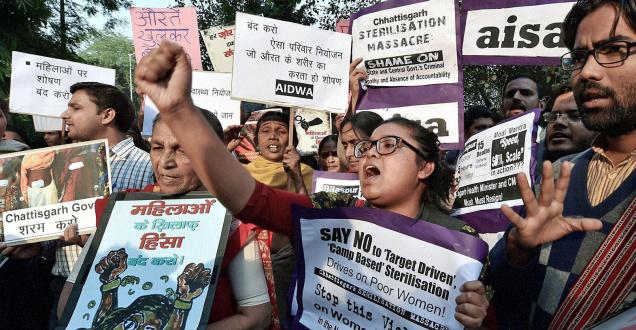
“As the sterilisation tragedy unfolded in Bilaspur, where as many as 14 women succumbed to medical misconduct, the media was all over the local administration, rightfully asking some tough questions. Barkha Dutt from NDTV interviewed Raman Singh, chief minister of Chhattisgarh and pointedly asked him about “political accountability” for the tragedy. This was the line of questioning on news channels and newspaper reports.
In the last few days, local newspapers carried news of arrests of Ramesh Mahawar of Mahawar Pharmaceuticals and Rakesh Khare of Kavita Pharmaceuticals after reports emerged that the antibiotic Ciprofloxacin allegedly manufactured by these two pharmaceutical manufacturers was laced with rat poison.”
Read more – Business Line
November 20, 2014 | Greg
At a time when the government is working on a policy to incentivise local manufacturing of raw materials or bulk drugs for producing medicines, the domestic industry does not see business sense in attaining self sufficiency in most raw materials. Several drug makers and trade body representatives want the government to focus on attaining self-sufficiency in producing key raw materials which go into making just about 15 essential medicines including painkillers and antibiotics to reduce dependence on China.
Read more – The Economic Times
November 20, 2014 | Greg
A US court has denied a request by drugmaker Ranbaxy Laboratories Ltd to stop competitors from launching copies of AstraZeneca Plc’s heartburn pill Nexium and Roche’s antiviral Valcyte, a court filing showed.
Read more – The Economic Times
November 20, 2014 | Greg










